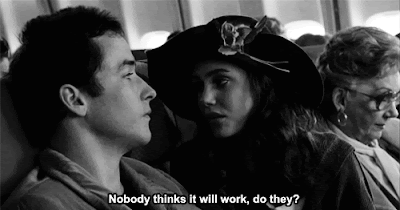By Charlotte
Book Review: Gregor and the Code of Claw by Suzanne Collins (Book 5 in The Underland Chronicles)
Official FC Rating:
This review was originally posted on my personal blog, To Harriet Louise.
A couple of weeks ago I wrote up a little review of how I felt about the fourth book in The Underland Chronicles - Gregor and the Marks of Secret. I loved it and thought it was a good continuation of the series, if a little slower paced than the other books. I also mentioned not remembering quite as much detail since it's been months since I've read the books... it's obviously the same deal with this book. But I think I can still give a pretty decent idea of what this book is about and whether or not you should read it (you should!).
Like I've said in each of these reviews, this series is amazing. (For those who like kidlit/have kids and are familiar with it: this series is better than Percy Jackson but not quite as good as Harry Potter.) It tackles discrimination, oppression, war, right vs. wrong, morality, and this time, fate. By now Gregor has fought in Underland several times, trying to do what is right (and to be honest, just trying to figure outwhat is right). He learns of a prophecy that calls for his death (this story line is sort of getting old? I say this as though it ever stops me from reading anything...) and must decide if he's still willing to fight. I guess I won't give the answer away but it's pretty obvious considering it's a novel...
But anyway. We once again deal with Solovet and her grimy tactics. She's basically America. She wants to look good and fair and all, and she says she stands for justice and peace, but... she tries to "achieve" justice and peace by, like, violent tactics. So...
Gregor is not a fan.
A lot of this story is simply battle. We still have some issues and we're not entirely sure who is bad and who is good. I think the ending is mostly a morally sound one. We do not get to know every detail about what happens once the novel is over (big things like "does peace last?" and small things like "what happens to Luxa and Gregor?"), which annoys me a bit. But I thought we were given some clarity on the war and on morals and I think the "right" things happened. (I'm trying and failing to describe this without giving anything away.) Essentially, none of the bad guys truly win. The morally bad characters - whether obnoxiously, Donald Trump-esque bad like Bane or more subtly, Hillary Clinton-esque bad like Solovet are ultimately seen for what they are. It is a dark, hard ending. There are major losses. I cried and I imagine it'd be difficult for kids, but that's true of this story in general once we hit the third book. I'd want to read it with a kid instead of them reading it alone.
So this whole time we have one species fighting another species, some species driving other species out of their homes, species trying to kill off other species, etc. etc. And throughout this whole thing we see some members, particularly of the oppressor groups, employ awful means. There is little regard for life by these characters, and especially for life that doesn't resemble their own. (Sound familiar? Regalia is America, for real.) And at the very end of the series, our young hero Luxa and the scrappy Ripred, a rat leader, do something completely unprecedented and totally moving (to me, anyway) to change the way things are done and I don't think Collins could have given us a better ending. I don't want to spoil it so I can't say much more, but I think Collins just ended it on such a good and appropriate note.
Overall as a series these books teach readers to question war, to stand up for the oppressed, to wonder about free will, and to choose good. I don't think it gets much better. I really think I might like this series better than The Hunger Games. I 100% recommend it.
__
Char
Reviews for earlier books in The Underland Chronicles:
Gregor the Overlander (Book 1)
Gregor and the Prophecy of Bane (Book 2)
Gregor and the Curse of the Warmbloods (Book 3)
Gregor the Overlander (Book 1)
Gregor and the Prophecy of Bane (Book 2)
Gregor and the Curse of the Warmbloods (Book 3)

















































